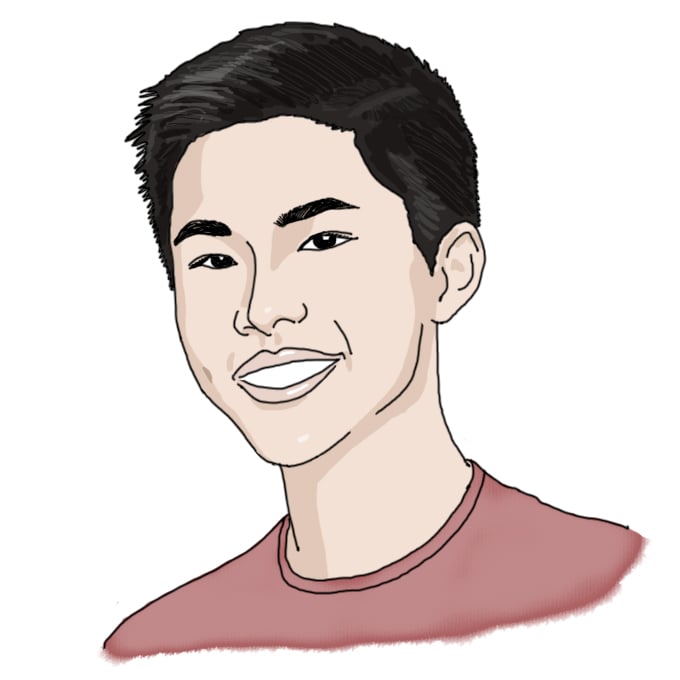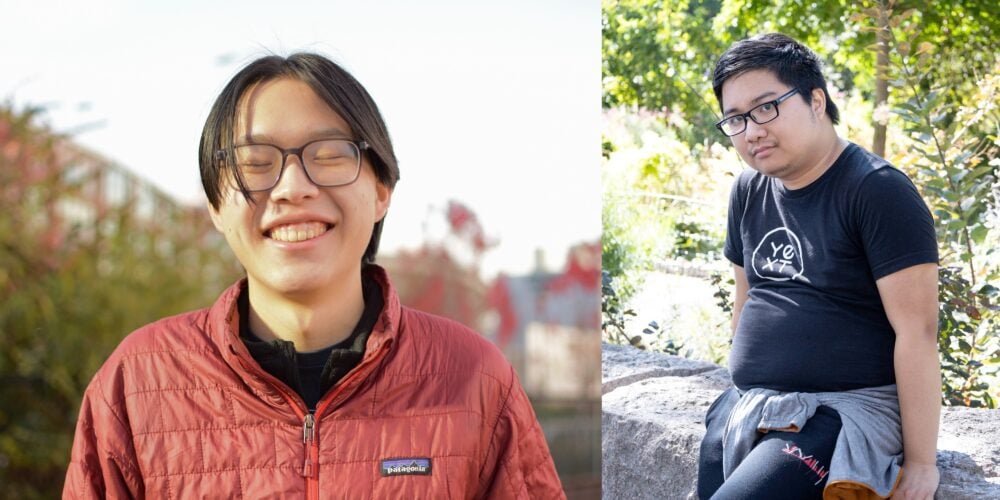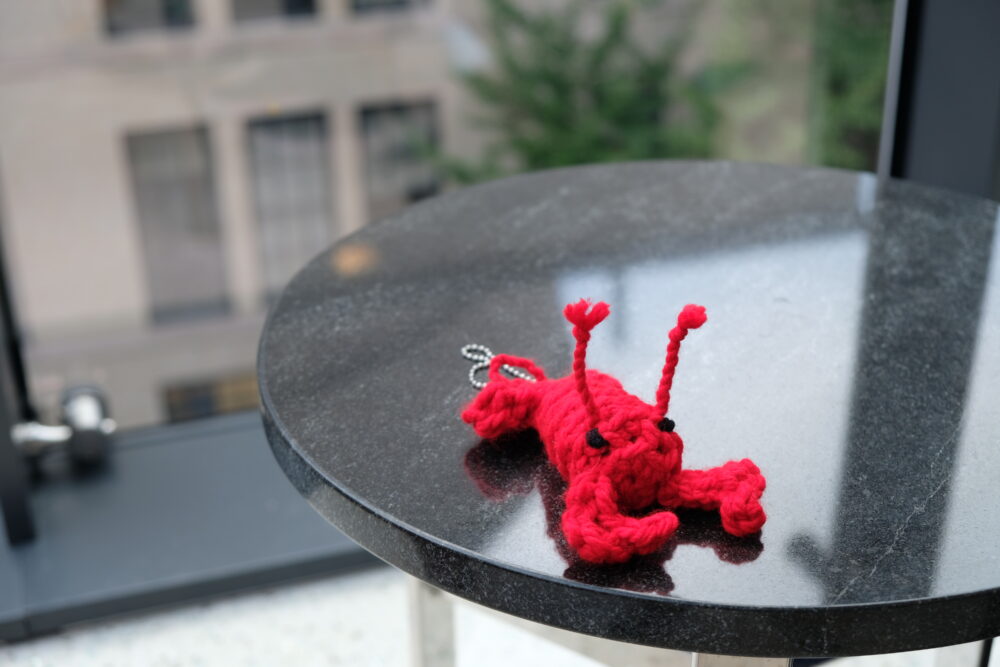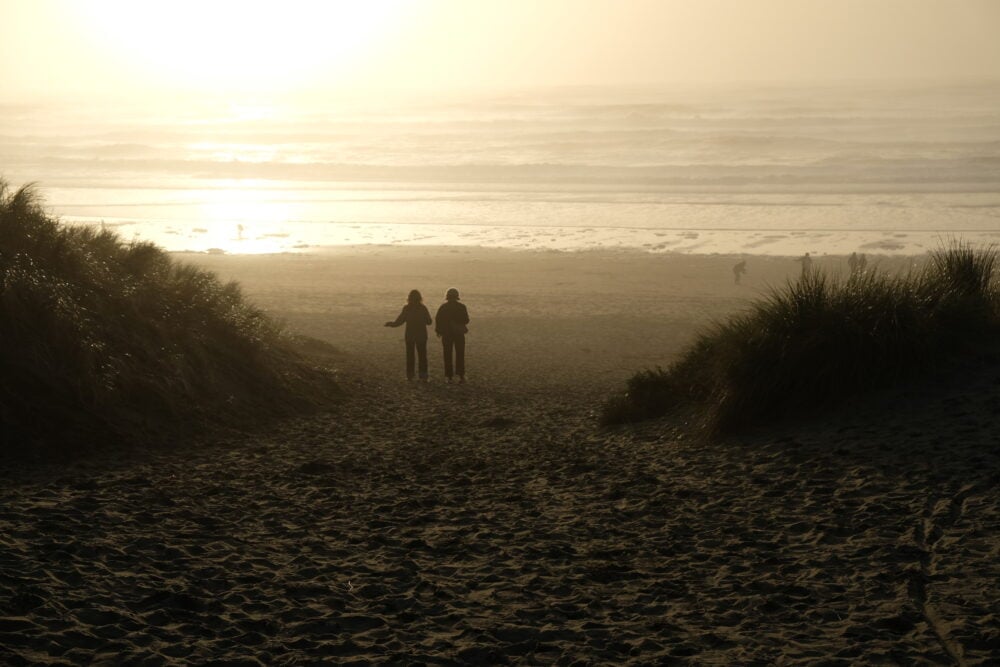
in search of lost time by Alan Z. '23, MEng '24
a cruft joint post with CJ Q. '23
zero.
alan

proof of life (credits: Arun W. ’23; Eric Z., Harvard ’23)
So, in spite of it all, we’re still alive, and we’re still writing. You can’t stop us. I’m fairly convinced that nothing can, except for the sweet and eventual embrace of death that comes for us all. But, at least for now, I’m not too worried about that inevitability.
Some things have changed. CJ lives in New York, where they work for Stainless, a company that helps people who build web applications talk to each other in different programming languages. I live in Seattle now, where I work on power management for Windows. I travel more than I used to, mostly to visit friends who are now spread out across the country. CJ has “maybe gotten into rhythm games,” or something like that.01 CJ tried to explain but I refused to follow, on principle.
Some things have not. CJ and I still do Mystery Hunt, where we both spent three days last weekend just staring at computer screens trying to solve puzzles for “fun.” Last March, we visited every station on the New York City subway in a 29-hour sequel to our MBTA excursion, which we wrote about but never posted. I still occasionally do musical theatre, and CJ still occasionally square dances.
Certainly, however, time has passed.
one.
cj
When people approach an ending, do they act any differently?
For the past seventeen months I’ve been living in New York City, in a cruft house named LoTaD, short for Land of Trees and Darkness, or Land of Time and Destiny, or Land of Takeout and Delivery, or whatever, depending on who you ask. Our apartment’s first set of residents was me, Brian ’23, Ixa ’23, and Jason ’22. Five months ago, Brian moved out of LoTaD to start a master’s in Oxford, and Victor ’23 moved in to replace him.
Brian and I spent a lot of time hanging out after work. We’d watch Make Some Noise or Fantasy High Junior Year on Dropout, or I’d watch him play MTG Arena, or he’d watch me play 汉字大冒险, or we’d discuss Henkinization, or pro-drop, or adjoint functors. By the time Brian was planning his trip to Oxford, we wanted to watch Never Stop Blowing Up together, but we decided not to start it, because we knew we couldn’t finish it before he left. We made plans for watching the episodes together remotely, over Discord calls, and we juggled time zone differences and work hours, and when he left I didn’t know if those plans would come to fruition. He promised that he’d be back in January.
I started working for my previous company seventeen months ago, after interning there the previous year. By then, some of the people I’d loved working with had left, or were on another team, or were on the other coast, and I knew I’d be interacting with them a lot less. There’s a plea my heart sings: If I ever come back, I hope you’ll still be here. Inside the plea is a fear, the fear of coming back to something I once loved, and seeing all the things I loved about it be gone, or worse, different. Different in an unpredictable way. I’d shaken out the initial thought of I might stay here for a few years, and it became I’ll see if I’ll want to leave.
When I see the possibility of an ending, do I act any differently?
two.
alan
Someone recently asked me what activities I did during my undergrad at MIT. I told them “a lot of musical theatre and student government,” and then I stopped. I tried to remember anything else I’d done, because I knew there was more—I mean, after all, I’d been so busy—but nothing came to mind. This realization, that I had forgotten so many activities which were important to me at another time, hit me hard. I’d forgotten the acapella group I’d spent four years in; the quizbowl tournaments I drove my team to; the late nights I spent reading applications for THINK. I’d forgotten so much, even if it was just a momentary lapse.
Maybe my memory’s just not that good, or maybe impermanence is the norm.
The students I now interview for MIT keep asking me, in one form or another, what I got out of the experience, and I try to tell them, but often I get stuck trying to summarize the unsummarizable. How do you describe something that was your whole life for five years? I did things at MIT I couldn’t have imagined going in, and they changed me in ways that I don’t think I’ll ever really be able to explain. I met so many kind, intelligent people who taught me about computer systems and writing and plant biology and topology, but who also taught me how to be kind, how to lead with care, how to not be afraid when facing difficulties of different shapes, how to intentionally and persistently strive to do better.02 many of my friends try too hard, and I am constantly trying to live up to their assiduousness. You know who you are. And, in one way or another, I did my best to show other people how to do these things as well.

a (rock) lobster gifted to me by Laura R. ’22
Sometimes during these interviews, I feel like I’m watching that life through a rearview mirror, receding into the distance, growing hazy. It’s not that I’m stuck in the past—I’ve always liked living life looking forward to something, and I’ve got plenty to look forward to. But there are things that will never be again. 3 AM conversations in the dorm lounge about category theory, or inorganic chemistry, or Modernist poetry; writing vocal arrangements and plays for your friends to perform and see; finding fun ways to just waste time with your band as you sit on stage03 such as, say, playing the song "Rock Lobster" over and over at any possible provocation to do so. during pit rehearsals: maybe they aren’t impossible, but the opportunities for things shaped like this are fewer and fewer. And, as time moves by, I begin to forget what happened, and I wonder if I’m forgetting what I learned, too.
To put it simply: one chapter has ended, and another one has begun.
three.
cj
The etymology of the word end goes through the Proto-Germanic *andijaz, which means “endpoint (front or back)”. Imagine a timeline split into eras or periods, or perhaps imagine the real numbers partitioned into intervals. Each period has two endpoints, the front and the back. Each endpoint touches two periods, the ones before and after. This is a point–line duality, a change of perspective: it’s our choice to view periods separated by endpoints, or upheavals separated by stability.
I knew Victor well, about as well as I knew Brian, and I looked forward to all the things we’d do together, once he’d moved in. We’d go to the square dances that Geo calls up in Jersey City, and take the LIRR to the Round One in Hicksville to play Sound Voltex or Chunithm, and discuss paper-folding algorithms, and pork floss cake roll, and how bad Next.js is. But was it going to be as fun as the time I spent with Brian? I didn’t know. I had a gut feeling though, a feeling that told me not to worry too much about it, so I didn’t.
Another end: when did I realize I wanted to leave my last job? Was it when I started working on other programming things, and realized I wanted to do other kinds of software development? Was it when I heard about the hundredth customer churning? Was it when more people I knew and liked left the company? Was it when I started idly browsing job descriptions, was it when I submitted applications, was it when I told a few coworkers I was considering leaving, was it when I interviewed, was it when I got an offer?
Up until that moment, nothing was set, everything was revocable, and I hadn’t committed. Yet my attitude to work changed. I started closing some outstanding projects, and writing whatever documentation I felt like people would need. I declined picking up long-term tickets, and I came into the office less and less. The behavior kicked in before I realized I was doing it. And when I noticed, I made an excuse: I was taking two weeks off that summer, so checking out was a good idea anyway, whether I left the company or not. But my muscles knew, knew before I did, that the end was coming. This was the immune system response to prevent me from getting too hurt when I leave, or to prepare me for starting a new job in a few weeks.
I took the offer. I told some teammates. I told my manager, and gave a formal notice. I told my manager’s manager. I told more teammates. I got the email from HR. I filled out some forms, scheduled an exit interview, sent an email to the company, got some Slack messages, added some people on LinkedIn, said where I was going. I went on some goodbye calls, I collected all my things from the office, I shipped my laptop back, and that was it. It was over.
An ending can be as long as you want it to be. Circumstances set boundaries, but they aren’t emotional safeguards, they can’t be. You can leave with your head on backwards and arms tucked in, or you can suffer over the temporary and savor the liminality.
A few weeks later, Victor moved into LoTaD, and I started my new job.
four.
alan

a seagull from Fisherman’s Wharf, San Francisco
I guess another reason I think about this ending so much is that I never got to say goodbye to MIT in the way I would’ve liked. I finished my master’s over the summer, living alone in Sidney-Pacific,04 the graduate dorm where I lived during my MEng. doing research all day and sometimes all night, with only a few friends around and just a couple of other distractions. I didn’t finish my thesis until two weeks after I’d moved to Seattle and started my new job, pulling late nights and early mornings to get everything done. In the midst of all this, it was hard to feel like the chapter was actually foreclosed. Maybe it was just on hold, for a while.
This explanation is attractive—after all, those few weeks were very surreal, signing a lease with a roommate from afar without having ever visited the apartment, sitting on a bare mattress in my dorm writing thesis code as movers collected all of my things, showing up to a random office building on the first day still a little bleary-eyed from a late night worksession and unsure about new job etiquette. Yet, I also suspect that true closure is, in some sense, a myth. Endings are never as clear as you’d think, because life is continuous. Who knows whether this is the last time you’ll ever talk to this acquaintance or that one; who knows whether that was the day you forgot their name, or the day before?
When I think about endings, I think about how, in all the productions of musicals I’ve done, I’ve put weeks of effort into doing whatever my part is, and then, in a blink of an eye, whether three or six shows later, it’s gone. It’ll only exist as a memory in the people who happened to be there in that brief and transitory moment, when we agreed to be in a room together, doing or seeing a show. Those endings, too, never feel complete. Those memories, too, will fade. This is just a bigger version of that.
I still keep doing shows, even though they’ll be forgotten, because I enjoy them in the moment, in the process. Because I like putting a smile on people’s faces, especially when I don’t have to be on stage myself.05 for the past few years, I've been developing this theory of backstage work. I'm always particularly delighted when people delight in what I do, especially when they don't know that I'm the one doing it—but I'm still not really sure why.
Why should any other part of life be any different?
five.
cj
Here’s a confession. All those things I wrote about Brian? Or about leaving my last job? They’re half fiction.
In the trivial sense, my writing can never capture reality, because reality is multidimensional and prose is a restrictive medium. But even if I could perfectly communicate what I want to, there’s a more essential problem: the fallibility of memory. I’m writing this months after those events happened, and I’m not looking at any receipts while doing so.
I see so many things I don’t remember. I see weeks of lived experience collapsed into sentences: “Brian and I spent a lot of time hanging out after work,” or “I started closing outstanding projects, and writing documentation.” I’m reminded of a segment from Matthewmatosis’s Meta Microvideos:
Over time, the past gets more and more compressed, until only the most important points remain. You can think of every classic as a peak on a mountain; the tide keeps rising, drowning out all the lower peaks. As the water gets higher, the average distance between peaks just keeps getting wider. To the casual music listener, most of Mozart’s contemporaries, like Salieri, have drowned, and someday, he might, too.
I’ve quoted this before. I almost forgot about that.
The time passed, as it always does. Let me collapse my experience then: Victor moved in, and we spent some great time together; I started my new job, and it’s been treating me somewhat well.
It’s January now. Brian came back, as promised, and we did many of the things we used to do together. We watched stuff, played video games, talked math. We did some new things too. Victor, Brian and I went to Flushing to play rhythm games and get dinner. We left unspoken the fact that Brian was only here for a few days, days we, of course, wouldn’t even spend all together, days that would never really be like the days that we had in the past. Now Brian is gone, and he is back in Oxford, and who knows when we’ll see each other again. It’s only been a few days and I can no longer remember everything we did.
I’m in Boston again, and I’m catching up with people. I talk about my new job, and people ask how it’s different from my old one, and the best I can come up with is the things I work on are more interesting. When people ask about what I disliked about my old job, or when I think about my old job, it’s like I’m running my fingers through sand. I know things must’ve not been great; that’s why I left, right? But how much could I trust that, if I can’t remember the evidence to back it up?
six.
alan
A few months ago, I was listening back through the original campaign of The Adventure Zone, a D&D podcast which I don’t listen to much of anymore. I’ve listened through this campaign a number of times since it was first released in 2017, and as I was writing in my journal, a curiosity struck me to check when the last time I’d listened through was. Looking back, I realized it had only been a year ago, just at the start of the MEng. I wrote:
Man, it’s been 400 days since I last listened through…just over a year, just starting the MEng, and yet I feel unrecognizable to myself from then. So much pain has passed between now and then.
It was this second thought that was really jarring to me, because it was this sudden indication that I might be measuring the passage of time by “pain incurred.” And, the more I thought about it, the more I realized it might be true. I remember semesters of school by the bad things that happened, by the difficulties I had to overcome, rather than by successes, by accomplishments, by joy, by forward progress. I forget the good things, because once they’ve happened, they become part of who I am, like it’s always been that way. I stop noticing them.

near Grand Central Station in Manhattan
And then I thought, what happens now? It surely can’t be healthy to live forever with pain as a metric of time; to have to struggle and suffer to feel like growth has happened. Surely, now, as life goes on, there must be something else to measure the years by.
I don’t know. I think that’s one of the next questions I’m looking to answer.
seven.
cj
A situation can trigger memories of a similar traumatic experience, but it can also trigger memories of a similar wholesome one. MIT’s campus is replete of these delightful reminders, and if I defocused my attention and walked around, I could feel it constantly. The brain doesn’t need to remember everything; the body remembers too. Maybe memory is never cut so cleanly, maybe the details we’ve lost aren’t gone forever, you know?
The Monday after this year’s Mystery Hunt, me and some teammates gathered in a friend’s apartment to play board games. We started at 8 PM, and soon enough the board games stopped, and people moved to sit on the couches and chairs around a coffee table, and talked, for three hours straight. We talked about many things: what people were up to, names, Magic the Gathering, random things people had memorized, square dancing.
Someone later described that whole thing as a dorm-lounge-coded conversation, and that comparison made me pause. It was a dorm-lounge-coded conversation, wasn’t it? One I’ve had hundreds of times in many guises, in the TV Lounge on floorpi,06 the East Campus hall I lived on, Third West. one I haven’t had recently. Or maybe, the similar ones I’ve had recently were of different flavors: ones that veered closer to Geoguessr or whatever nonsense the big AI companies are up to. Or maybe, these conversations can only really happen with a critical mass: you need a dozen people, all familiar with each other, all lounging without the pressure of making the most of their time.
I’ll forget about that conversation soon enough. It’ll be a warm patch in the fabric of the past few weeks, and then it’ll be gone. It might be there when I come back, and maybe we’ll trod the same ground again. There are no stakes in having fun. Part of me will remember anyway.
I don’t remember much from reading Kundera’s The Unbearable Lightness of Being, but I remember one of its arguments: you only live once, so your actions have no meaning, no weight to pull you down. This is in response to the idea of eternal recurrence, put forward by Nietzsche: you will live your life over and over again, so you better be ready to repeat your actions an infinite number of times. Eternal recurrence isn’t a literal fact, but a hypothetical: if I told you that you had to repeat your life forever, what would you feel? If you were given the chance to do it again, in exactly the same way, would you?
If you gave seventeen-year-old me the choice to live his life all over again, he’d have said no. If you asked me now, I might say yes. Hell, I might be living in eternal recurrence right now. I don’t remember the future, but something in my body tells me that it’ll all be worth it.
eight.
alan
Maybe the point is this: you’re always changing, even if it feels like you aren’t. Every new memory, every little thing you do changes you, and you just never notice until one day you wake up and you think “that’s not who I used to be.” Sometimes, even that thought disappears, and instead you think “I must have always been this way.”
When life changes suddenly, it puts you off balance, because it reminds you that change does happen. It reminds you that not everything will be as it was, and ever shall be. And, yes, there will be things you lose: memories, friends, skills, opportunities. But there are also things you will keep—and, most importantly, things you will choose to keep. Values and ideas and memories and people that, after years of becoming yourself, you know are too precious to lose.
It is in this sense that life currently feels urgent and exciting to me, this combing of the past to tell me what is important to my present. It is trying to escape this stuckness, trying to take my eyes from the rearview mirror and move them to the road ahead, without forgetting what is behind me. I am holding on to the steering wheel, because there is still so much to look forward to. I am looking forward, because being terrified that I’ll lose the good parts of who I was only makes them more likely to slip away.
And, indeed, I do some new things now, and I am starting to hold them too. I’ve joined a new choir; I’m playing in a symphony orchestra for the first time in five years. I bought a camera and I’ve used it liberally07 friends I've seen can attest to this. to capture moments that speak to me: a silhouette here, a reflection there; a moving car here, a candid smile there.
I keep realizing that I am genuinely quite happy, even if it feels like nothing matters the way it used to; where I’ve suddenly gone from someone who is always making art and organizing activities to someone who works a day job and has hobbies.08 honestly, this is quite reductive; I feel genuinely quite lucky that I have a day job which feels like it has big, real-world impact, and I probably have more time and energy to spend on my hobbies than most people do, but it is still a fundamentally different modality. I know, in the long run, the things I’m making likely won’t be noticed or remembered by anyone, including myself, and maybe that’s okay, so long as it changes me, though that won’t stop me from trying.
I guess I’ve been looking for permanence in a world where nothing is permanent, where even mountains, after months and years, centuries and millennia, ebb away. It is time to learn that nothing gold can stay, and that can be okay.

approaching Ocean Beach, San Francisco
Perhaps now is the season for change.
nine.
cj
And so:
- we learn things we’ll have to review,
- we read books and watch movies that we’ll forget,
- we have conversations we’ll repeat over and over,
- we create art that’ll linger in obscurity,
- we go to parties and meet people we’ll never see again,
- we make friends we’ll only see a handful of times,
- we do things even if we’ll forget about them,
because:
- we learn the things faster the next time around,
- we get to experience the joy of first reading or watching,
- we enjoy repeating the conversations anyway,
- we make the art for the sake of making the art,
- we become closer to the kind of person who meets people,
- we are ever-changed by those we hold close,
- we remember, or at least, part of us remembers,
because:
- an ending is never fixed in place,
- a memory is never cut so cleanly,
- the time is never truly lost.
- CJ tried to explain but I refused to follow, on principle. back to text ↑
- many of my friends try too hard, and I am constantly trying to live up to their assiduousness. You know who you are. back to text ↑
- such as, say, playing the song "Rock Lobster" over and over at any possible provocation to do so. back to text ↑
- the graduate dorm where I lived during my MEng. back to text ↑
- for the past few years, I've been developing this theory of backstage work. I'm always particularly delighted when people delight in what I do, especially when they don't know that I'm the one doing it—but I'm still not really sure why. back to text ↑
- the East Campus hall I lived on, Third West. back to text ↑
- friends I've seen can attest to this. back to text ↑
- honestly, this is quite reductive; I feel genuinely quite lucky that I have a day job which feels like it has big, real-world impact, and I probably have more time and energy to spend on my hobbies than most people do, but it is still a fundamentally different modality. back to text ↑